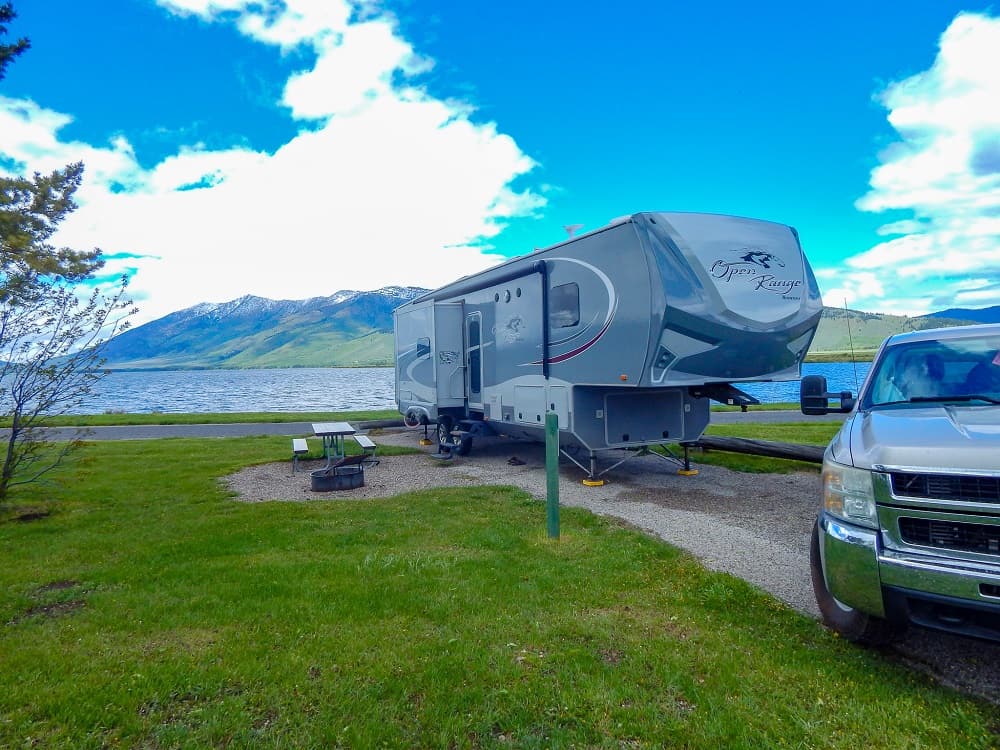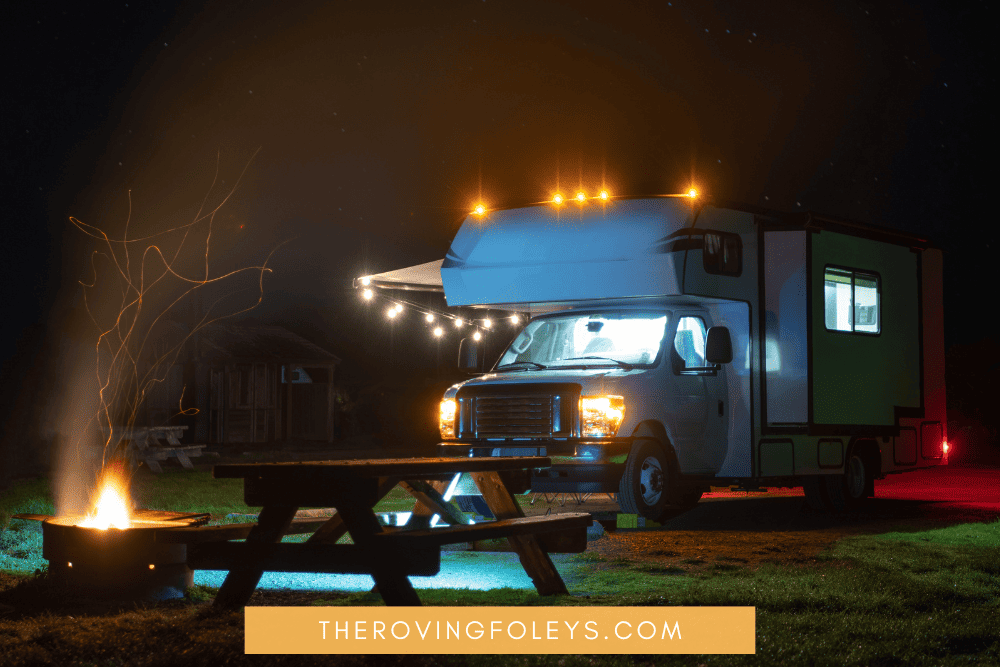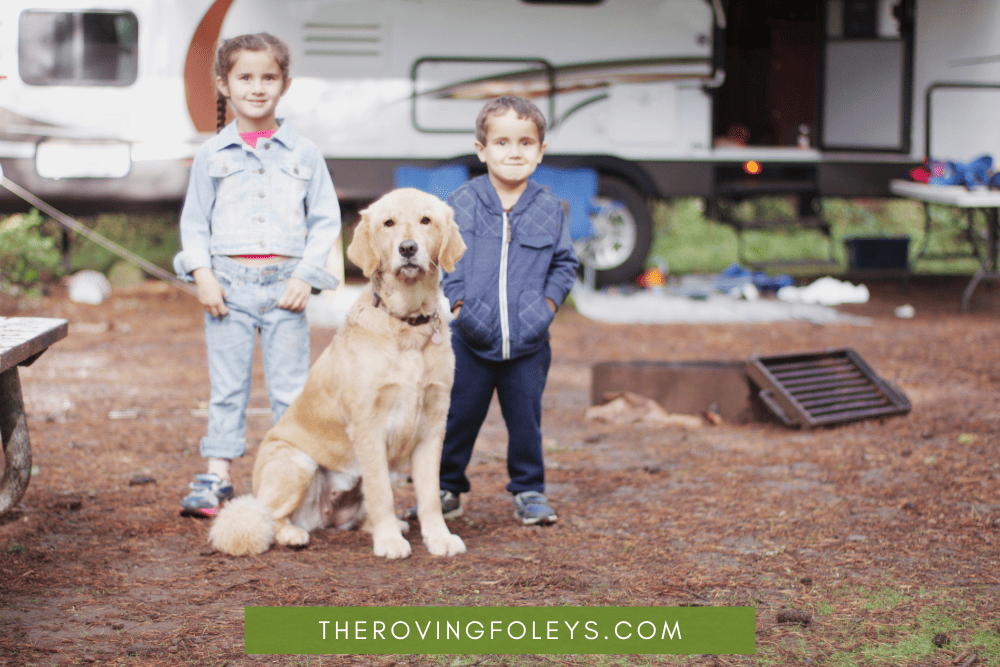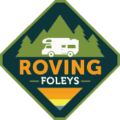What Is RV Campground Etiquette ?
Our lives and our society are governed by rules. Some of these rules are written and enforceable. Others are more subtle and are maintained by common accord. This is no less applicable to the RV community than it is to any other sector of humanity. Even though the RV community are an easy-going bunch in general, RV campground etiquette still exists and should be learned and followed by all.
This guide will help you avoid inadvertently transgressing unwritten RV etiquette. Please enjoy these camping etiquette tips.
Before Your Arrival
Ask For Permission with Pets
It’s common for us RV folk to travel with our four-legged companions. Most of the time this is fine, but there are some sites that don’t like it and it is sensible to enquire in advance to avoid embarrassment. Also, remember to always clean up after your animal.
Be Prepared Before Arriving at the Dump Station
Dump stations can get busy. They tend to become bottlenecks as people cue to empty their tanks, especially on days when many RVs are departing at the same time. Have your equipment ready when you arrive so others don’t have to wait around while you figure out how things work and hose down and clean after you have finished.

On busy days, don’t make others wait while you flush your tanks. RV camping etiquette would say to move it along and flush at your next stop.
Arriving/Setting Up Your Campsite
Account for Your RV’s Slide-Outs
Sites can be crowded in some places and you may find yourself being shoehorned into a tight space. The most obvious sign that you are a newbie will be if you maneuver into a tight spot and don’t take into account that your footprint is going to expand once you roll out those slide-outs. Don’t be shy to ask for help from neighboring campers before placing your vehicle.
They will almost always offer to guide you into position and share information on how to place your rig.
RV Hook Ups
This is an easy one to get wrong. If you are using site hookups make sure you use the appropriate attachments. This is most important when hooking up sewer and water connections. Don’t mess and don’t waste water. RVers hate water waste with a passion.
Don’t Put Your Grill on the Picnic Table
Sounds like a no-brainer but you are bound to see this one. For some people, the idea of bending down over a grill seems too much of an effort. Placing it on the table almost always creates a mess and adds an unnecessary fire risk. Many RV parks have rules about this so at least ask ahead.
Space Evenly
When you are all dotted about in an open space this might not be an issue, but boy, when you are packed like sardines on a busy site, taking up too much space can make you a pariah very quickly. All it takes to avoid this error is a little forethought and consideration. Know your site boundaries and respect them.
Park Your Tow Vehicle at Your Site

You know that guy on the crowded train who takes up a seat for his case while others have to stand? Use a separate spot for your tow vehicle and you become that guy. Ask at the office where you should park any overflow vehicles.
Respect Reserved Sites
If a site is reserved but not occupied, it is not a license for you to just move in. These spaces are almost always reserved for someone who will show up. You will end up having to relocate AND you will really make your neighbors angry.
Backing Into a Campsite
I get it. It can feel good to get that tricky reversing job over and done with right from the get-go. The actually is some RV campground etiquette around parking your rig. If you are going to do this while others are enjoying their meals or trying to grab some sleep, you risk being a pain as you perform that complicated operation. Try to always time your arrival to camp at opportune times of the day.
Don’t Be Afraid to Ask for Help
Asking for help is surprisingly welcome. In fact, it offers a good ice breaker for RVers to get to meet one another so don’t be shy. You will find other RVers to be very helpful and accommodating.
Late Arrival
RV resorts and campgrounds tend to place a great deal of importance on designated quiet hours. Arriving late causes disturbance and can often be avoided with just a little forward planning. If you are forced to park outside of regular check-in hours, call ahead and ask about campground rules, and when you arrive, be a good neighbor and complete as much of your set-up as you can when the quiet time is over.
What you do need to set up should be done as quietly as possible and try to pick a site as far from neighboring rigs as possible.
Campsite Lighting

Proper RV campground etiquette dictates that you should place neighboring camper’s needs ahead of your own. Bright exterior lights which spill over into a neighbor’s site are a problem that can easily be overlooked, but which might ruin the camping experience of those around you. Where possible, use lights that don’t impinge on the outdoor experience of others and aim them into your own site only.
There are a range of lights that are not overly bright and which will be adequate to light your site only.
Living at the Campground
Wait for Social Cues
Moving onto an RV campsite is like moving into a small village. All of your campground neighbors will be watching you, and how well you follow RV campground etiquette. Those initial hours will quickly determine how well you are accepted by the community.
Most of what you need to do will be sheer common sense.
You probably want to make friends instantly but, as with most societies, you will need to tread carefully at first. Be polite and friendly, but don’t go bounding up to the neighboring campsite and pour out your life story until you are sure you will be welcome. Most of your fellow campers will be as keen for interaction as you are but allow a little time before you interact.
Some subtle clues (like upside down pineapples) my let you know that people are ready to become “friends” fast. LOL
Resist Blasting Your Music
Both the music you enjoy and the volume at which you enjoy listening to it can be subjective. Blasting heavy metal across many campsites can quickly turn you into an outcast and might even make your campground neighbors consider setting fire to your rig. RV campers are private people who tend to prefer the sounds of birdsong to that of loud music.
You should always ensure that any music you do choose to listen to doesn’t extend outside of your personal space.
Let Your Neighbors Park and Get Settled First
In much the same way as you need to tread carefully before approaching campsite neighbors when arriving, the inverse is equally applicable. Getting installed in a new campsite can be one of the more stressful parts of any RV camping trip. The driver has many balls in the air at once, ranging from parking his rig, through to levelling it and installing connections and slide-outs.

The last thing any RV driver needs is some overly helpful fellow camper offering advice or being overly friendly. If he needs help he will ask and friendships take time to develop on a campsite, just as they do anywhere else.
Don’t Walk Through Other People’s Campsites
It often amazes me how often this little piece of RV campground etiquette is overlooked. From the moment an RV moves onto a site, that particular piece of ground becomes his territory and people can be very possessive of their property.
Through bad design or unavoidable circumstances, at some RV campsites, it sometimes seems that the simplest way of getting to the RV park bathrooms or other facilities involves crossing what is actually a designated site. The unwritten rule is that you always avoid getting too close to your camping neighbors and that you don’t simply stroll across their site, even if it does seem more convenient to do so.
Cleanliness
As a rule of thumb, you should always assume that RV campers are people who are fond of the outdoor environment and who place great store in maintaining it in pristine condition at all times. Though you may be the temporary owner of the site you have rented, it will be frowned upon if you detract from the surroundings by filling the area with clutter, rubbish bags, or other unsightly items. As for leaving a mess in the communal spaces, don’t even think about it.
Related Articles
- Best RV Tips and Tricks
- Ultimate Guide To Camper Weights
- RV Length For EVERY National Park Campground
- How To Keep Track Of Important Campground Details
Campground Facilities
Less considerate campers seem to have an exaggerated capacity for forgetting those campground facilities belong to all of their campground neighbors, and not just themselves. This means that RV campers need to constantly be aware of how much they use those facilities and the state that they leave them in. This is an issue that becomes most apparent in regard to the ablution facilities but applies equally to all shared spaces.
Don’t spend too long in communal showers. Be aware of the fact that hot water supplies might be limited, and always make sure that things like showers and toilets are left in a state of cleanliness when you have finished using them.
Campground Noise
Here is another one that many campers get wrong. Good campground etiquette applies to how much noise you make during your stay. For starters, you are probably living more closely to your camping neighbors than you would be at home. In addition, RVs are thin-sided and don’t offer as much sound insulation as a brick-and-mortar home does.
Finally, it is worth reminding yourself that RV campers are a particular breed of people. They generally like to escape the excesses of normal society and those excesses include man-made sounds. Give them bears roaring, birds chirping, or wind blowing through the trees, and they won’t bat an eyelid.
Pump up the music or rev your vehicle during quiet times and you will quickly become unpopular. Also, remember that quiet times on an RV campsite far exceed those you might expect in the outside world.
Pet Noise
I have invariably found RV campers to be extremely accommodating of dogs but with the proviso that the dogs are well-behaved, kept on leashes where appropriate, and above all, don’t bark excessively. Noisy dogs are unwelcome dogs and their behaviour always reflects on the owners.

Children
Here we enter a zone of RV campground etiquette that is very similar to that of animals. Children are almost always welcome providing that they are well-behaved and don’t disturb fellow RV campers with their noise. Here, it all comes down to the parents and they need to teach children that sometimes the noise levels that might be made in a playground when out and about need to be kept lower than might be acceptable elsewhere.
Generators
A generator can be an extremely useful piece of equipment for the ardent RV owner, especially if they are heading into wilder spaces such as national parks.
Once again, noise needs to be taken into consideration to avoid offending those quiet loving fellow campers. You will need to run the generator outside the campground’s quiet hours. Generators also produce fumes that will blow with the wind, so wind direction and distance from neighbors should be considered.
Respect Boundaries
All of the etiquette rules we have looked at so far boil down to having a little respect for those who you are sharing the great outdoors with. Each RV campground will come with its only tolerance levels. A packed site near a city will have occupants far more accepting of some kids yelling as they hit the pool than one would find at a wild site in a national park or forest. It is up to each of us to be sensitive and to read the room in terms of what will be acceptable and under what circumstances.
Campground Safety
Fire Safety
It seems obvious, but no matter where you choose to take your RV adventure, fire safety should be a top priority. Failure to respect fire risks endangers both yourself and your rig, fellow campers, and the local environment in which you are camping.
Within your rig, you should have fire blankets and a fire extinguisher. It is outside of the rig that some campers tend to behave most carelessly. Don’t light fires away from designated areas, use appropriate barbeque containers, and always extinguish any fire completely when you have finished using it.

Be aware of wind conditions and check that no local regulations prohibit the use of open fires. Campground owners will happily let you know if and where an open fire pit is permitted. A good campground neighbor tries to support local businesses by purchasing local firewood where it is on offer.
If your campsite does include a fire ring, chances are that fires are ok. But still check with the office as some localities have no burn policies during certain times of the year.
Pet Safety
When traveling with pets, it is always the responsibility of the owner to make sure they are safe and secure. Remember that your animal is in an unknown territory so always know where he is and check for any hazards in the area that might place him at risk. These include wild animals, running rivers, and local traffic.
Driving
Driving an RV brings with it a whole new experience and many etiquette rules that don’t apply when driving a regular car. For starters, that RV may be slower than local traffic conditions allow. Don’t be a road hog and happily tour around with a long trail of irate drivers behind you. This gives all RV owners a bad name.
Use the slow lane where appropriate and when traffic is building up behind you, look for safe places to pull over to allow them to pass. When parking, don’t take up valuable parking spaces that locals may need. You can always walk a little if you can’t get the perfect spot, while locals might not have the same time luxuries that you enjoy.
Local laws and regulations will differ. Take the time to get to know them so you know where you can do things such as stand up in the back of a traveling RV, whether or not rear passengers need to wear seat belts at all times, and if sleeping in the back of a moving RV is permitted.

It is important to plan routes well in advance so that you are better able to anticipate conditions ahead. One example is that you don’t want to find yourself driving into a village with narrow streets that can quickly turn into an RV driver’s nightmare. If possible, before setting out, quiz other RV drivers who may have already driven the route you are planning on.
They will be happy to warn you of difficult conditions in front of you.
Finally, that GPS is a wonderful tool but it can lead you to places that were never intended for turning a large RV. There are few things worse than turning into a small street lined with parked cars and then having to back your rig out of the trap your GPS had led you into.
Conclusion
This has been quite a long post and it may seem that the RV world is a minefield of social dilemmas that will be difficult to navigate. In fact, RV campers are among the most tolerant of communities and most of what you have just read is pure common sense. All you really need to do to follow basic RV campground etiquette is to exhibit a bit of social sensibility.
Though there are many unwritten rules, RVers are almost always like-minded people who want nothing more than a bit of peace and quiet and some time away from the chaotic world that most people find themselves surrounded by.

Grainne Foley
Grainne Foley grew up in Ireland and spent summers caravanning around Europe with her family. Now, as a wife and mother of 2, she spent 5 years traveling the USA as a full time RVing family. She is passionate about travel, and helping others who are considering the RV lifestyle. She has created dozens of helpful RVing checklists which are available throughout the website, and has curated hundreds of simple, flavorful meals for families on the go.










